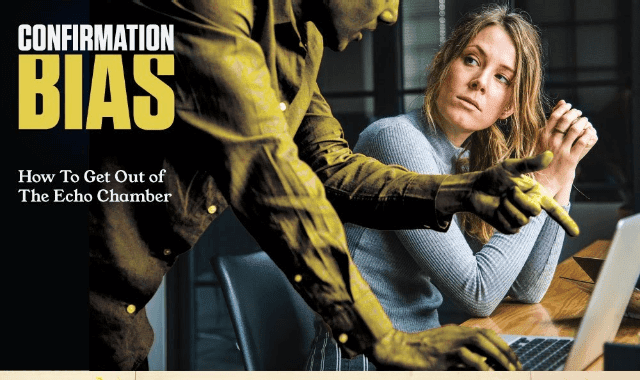These days it’s easy to find ourselves trapped in an echo chamber. From the content we consume to the friends we interact with on social media, information (and not to mention misinformation as well) are constantly bombarding us.
This feedback loop of continual confirmation of our beliefs, even when the content may be untruthful, is enough to make us believe it is real - because after all, how could we be wrong? It’s no surprise that news stories from more extreme publications on all sides of the political spectrum are shared 22% more than less biased news sources. Even on Capitol Hill, 48% of the articles shared by Congress members originated from news outlets that lean towards their own party; both left and right-wing politicians are guilty of this.
The simple fact is that people like to be right and prove others wrong; confirmation bias operates on the this reality. Actions like following exclusively publications you “agree” with and only unfriending those with views which oppose or even offend you are subtle ways that you may be generating an echo chamber for yourself.

Infographic by: www.psychdegrees.org
This feedback loop of continual confirmation of our beliefs, even when the content may be untruthful, is enough to make us believe it is real - because after all, how could we be wrong? It’s no surprise that news stories from more extreme publications on all sides of the political spectrum are shared 22% more than less biased news sources. Even on Capitol Hill, 48% of the articles shared by Congress members originated from news outlets that lean towards their own party; both left and right-wing politicians are guilty of this.
The simple fact is that people like to be right and prove others wrong; confirmation bias operates on the this reality. Actions like following exclusively publications you “agree” with and only unfriending those with views which oppose or even offend you are subtle ways that you may be generating an echo chamber for yourself.

Infographic by: www.psychdegrees.org

